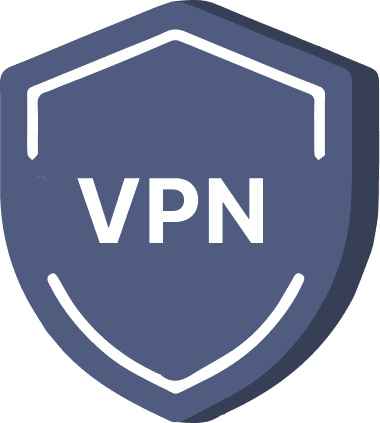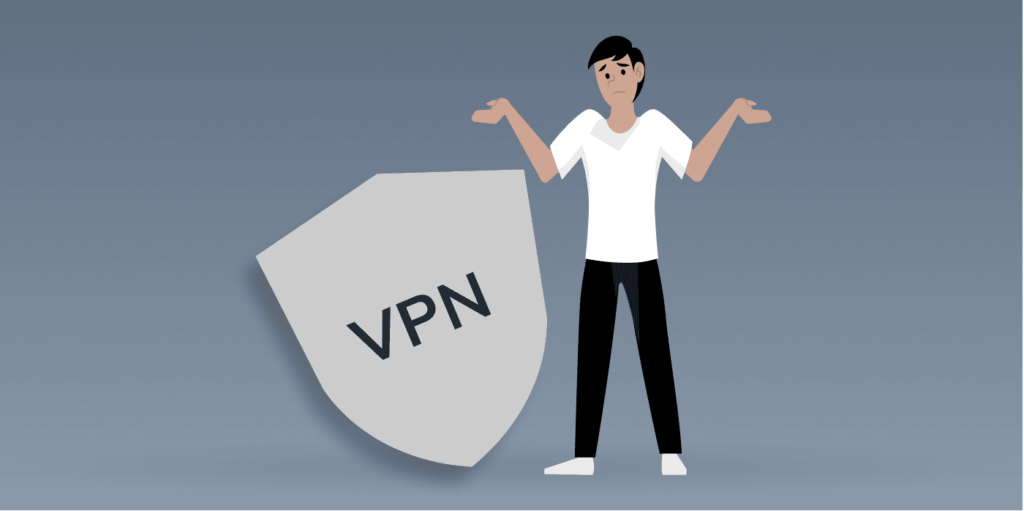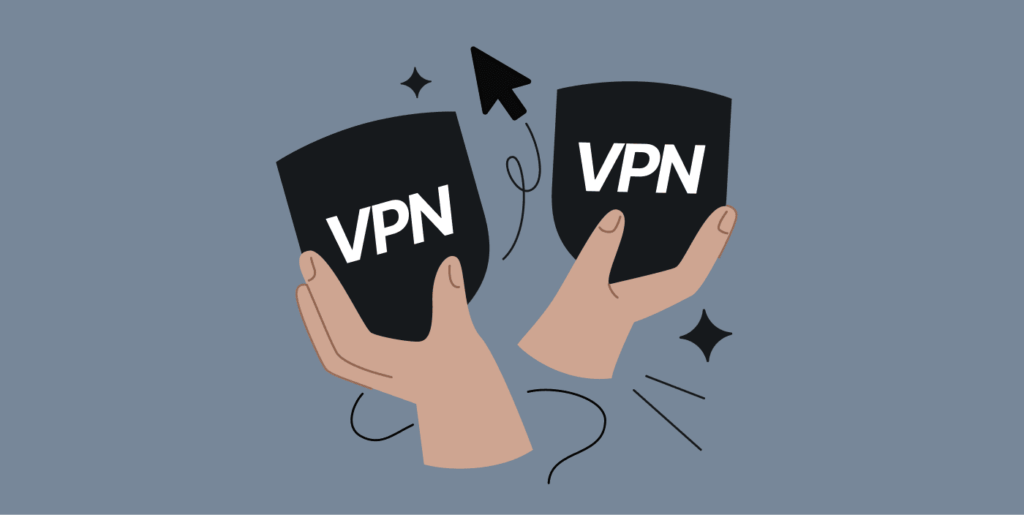There is no doubt that the Internet has advanced by leaps and bounds since its early days. Generally speaking, this has brought incredible advantages. However, it has carried myriad risks as well.

For one part, there are the “accepted” threats. A suitable example of this is the major companies that use our data as cannon fodder to feed their big advertising pockets. On the other hand, a much worse threat is cyber hackers waiting in line to commit virtual robberies and profit at our expense. Given this, there is no other option but to look for alternatives that protect and shield us from all jeopardies.
VPNs are an effective and common solution in these cases—or rather, first-class VPNs like ExtremeVPN. Yet users most likely wonder if there is any other free VPN alternative. Continue reading as we unveil a detailed list of the best alternatives to VPNs.
VPN Alternatives for Business and Privacy Worriers Alike – Quick List
- Proxy IP Addresses: A method that gives individuals or companies the possibility to redirect their data. With a proxy, you can get a different IP address in exchange for the one of your ISP. The major setback of this method is the vulnerability of the data.
- SASE Cloud Architecture Model: This method is relatively new compared to others in the list. SASE is an all-in-one security solution that combines a series of protocols connected to the cloud. Among these protocols are CASB, SDN, FWaaS, SWG, and ZTNA.
- Shadowsocks: This Chinese-founded method is an application that connects to a SOCKS5 server to re-route the traffic of a network. Unlike a regular proxy, Shadowsocks provides authentication methods such as Null authentication, Username/Password authentication, and GSS-API.
- Smart DNS: This method uses DNS proxies instead of IPs to circumvent geo-restrictions. It is an effective method to access blocked content. Yet, it doesn’t offer security options.
- SSH Port Forwarding: The SSH tunneling method is a system that uses a cryptographic protocol (Secure Shell) to create a secure connection between a client and a server. Unlike a VPN, SSH tunnels connect directly to a device instead of a network. SSH port forwarding needs commands for operating, but users can access their shells from any device.
- The Onion Router Network: TOR software is a solution that manages different global servers formed by volunteers. The traffic goes through encryption thanks to a node protocol that makes it impossible to know the source of the data. These nodes are Entry, Relay, and Exit. Each of these nodes only receives limited information about the origin of the data.
- ZTNA Service: ZTNA, or Zero Trust Network Access, is a method that requires constant validations of the user to access a network. Most large businesses use this method to shield their valuable data. Despite its effectiveness, it can request excessive user validations.
Alternatives to VPN: Detailed List

VPNs work satisfactorily for ordinary people. Yet, opting for a VPN alternative is right for those whose privacy is a must – like businesses. If you are looking for a modern VPN solution, the following security tools are the best options:
1. Proxy IP Addresses
Out of all the solutions in this list, Proxies are by far the most recognizable. A proxy system gives the user the chance to circumvent geo-restrictions by using a different IP address. Proxies operate very similarly to Virtual Private Networks. In this sense, they both redirect your data and change the address of your Internet Protocol. The most distinguished factor between proxy IPs and VPNs is encryption.
Whether this encryption system is impenetrable or not, it still poses an extra layer of security. Concerning this, proxies don’t count with safety protocols of any kind.
Verdict: A proxy IP address is a method; as popular as a VPN. Using this system provides the user with a similar result to a VPN. In short, you can get a different IP to surf the web.
Another positive aspect of Proxy IPs is their affordability. Often, having a Proxy can be even cheaper than a VPN. Yet, proxies are unable to provide web or network security overall.
2. SASE Cloud Architecture Model
The Secure Access Service Edge method combines different security services into a Cloud Architecture Model. While the assembly may vary, generally speaking, this is the structure of the system:
SASE = CASB + SDN + FWaaS + SWG + ZTNA
- CASB: CASB stands for Cloud Access Security Brokers. It is a system to secure access to cloud-based resources. The CASB system creates a checkpoint between the users and the service provider. To access the cloud, the user must go through security inspections. Some of the inspections include:
- Security alerts
- Authorization checkpoints
- Credential mapmaking
- Device identification
- Encryption protocols
- Logging
- Malware detection and prevention.
- Single log-in attempt
- Tokenization
- User validation
- SDN: SDN stands for Software-Defined Networking. It is a protocol that allows controlling networks by software.
- FWaaS: FWaaS stands for Firewall as a Service. It is a firewall that filters all the data users request or upload to the cloud. Because of this system, cloud computing becomes impenetrable.
- SWG: SWG stands for Security Web Gateway. It is a tool that averts malicious content from entering the network.
- ZTNA: ZTNA stands for Zero Trust Network Access. It is a security measure that keeps users away without permission from the network.
Verdict: SASE conglomerate system provides robust protection for large companies’ networks. It is an all-inclusive tool that fits the most common business security needs. Despite being an effective method, it can be moderately clumsy to resolve problems due to the immatureness of the system. In the same way, managing the internal network requires a degree of knowledge.
At last, some SASE security features may overlap with other safety functionalities. Correspondingly, performance issues are likely.
3. Shadowsocks
The creation of this system attributes to the Chinese programmer “Clowwindy.” Although many consider this system a Proxy service, it is more than that. We are talking about an application with several functionalities that uses a proxy server for functioning, the SOCKS5.
But Shadowsocks provides three different authentication systems, these are:
- Null authentication system: With this system, it is not essential to authenticate when accessing a proxy. Anything given as a password is accepted without being verified.
- Credential authentication system: The password and username must reflect the system’s acceptance.
- Generic Security Services API: In this process, two or more devices can authenticate using the same identity validation method.
Verdict: With Shadowsocks, users can easily circumvent geo-restrictions. The system redirects the traffic using a remote server that changes the users’ IP addresses. However, Shadowsocks doesn’t secure the traffic. Moreover, it could be very vulnerable to DPI attacks. Overall this system may be a fantastic fit for individuals, but it shouldn’t be the go-to option for businesses.
4. Smart DNS
A Smart Domain Name Server is a method that’s often compared to VPNs. The similarities between the two consist of using DNS proxies and servers to change the DNS address. As the DNS is a language your computer uses to convert a website into an IP address, sometimes this method is called DNS proxy.
A Smart DNS diverts your traffic through an external server; it changes your DNS address without modifying your IP. Like this, the websites you visit detect your DNS address and allow you to access it. The effectiveness of this method to circumvent geo-restrictions is notorious, but the security aspect is absent.
Verdict: A Smart DNS can help avoid geo-blocks. It can be especially effective on devices that don’t support a VPN. However, its major disadvantage is security; it offers no protection.
5. SSH Port Forwarding
Also called SSH tunnel, it is a method that uses the Secure Shell Protocol, a cryptographic system that helps you connect directly to a device. SSH requires commands; you can not access it through an app or a graphic element.
SSH port forwarding enables users to forward information from a client program executing on the same machine. The data goes across a tunnel with encryption as a secure shell customer. A remarkable feature of this security protocol is it can pass through firewalls because of its encryption and direct connection capability.
Verdict: The SSH port forwarding method is one of the most secure VPN substitutes in the industry. Overall it’s a great option. However, it requires a high degree of knowledge.
6. The Onion Router Network
Also known as TOR, this software is a splendid solution for individuals. TOR uses a server network composed of volunteers around the globe; thanks to this, it routes and encrypts the traffic.
In practice, TOR connects to a node inventory spread globally. Then, it funnels the data through three different TOR nodes; entry, relay, and exit. The communication protocol between these nodes makes it impossible for any computer to identify the origin of the data.
The entry node receives information about the user and the relay node. Subsequently, the relay node receives information about the entry and the exit. Finally, the exit node receives information about the relay and the destination of the data.
TOR is an outstanding solution because it dodges geo-restrictions while protecting users’ privacy. The main concern about this method is the swiftness, as connection speeds can be slow. Similarly, since it doesn’t use obfuscation protocols, ISPs can see you’re using the software.
Verdict: TOR’s operation system makes it a one-of-a-kind VPN alternative to remaining private. Yet, the speed performance is debatable. While it may represent a splendid solution for individuals, it is not the best business alternative. In the same way, individuals pretending to use TOR as a streaming solution may experience difficulties.
7. ZTNA Service
ZTNA stands for Zero trust network access; this method is popular among businesses seeking muscular service. The ZTNA default configuration allows the following:
- To block all traffic.
- To grant permission to specific apps.
- To utilize Multi-Factor authentication.
- To police users’ network activities.
- To request constant validation from network users.
- To avoid privileged access.
The constant identity validation of this system makes it a top-notch security service for large companies.
Verdict: ZTNA is a secure method to guarantee valuable data remains safe. While it may be a little drastic with the constant validations, it is quite an improvement compared to VPNs. In contrast, the usability of this system is not the nicest for individual users.
Why Do Companies Use VPNs, and What Drawbacks are They Experiencing?

Virtual Private Networks are an indispensable tool to make possible what a few years back was unimaginable. That is, to connect to work from the comfort of your home. In fact, not only to work but to any external space such as, for example, an educational institution.
The way this tool works is by creating an end-to-end encrypted tunnel. Through this tunnel, users’ identities remain anonymous. All data transfer between one point and the other; is carried out in the most secure way possible.
The popularity of this service peaked with the arrival of the Covid pandemic in the early 2020s. The thousands of workers who were unable to attend work, as usual, found an effective solution in VPNs.
Data shows that, as of now, around 92 million Americans can work remotely. Half of them use VPN services. Yet, it is precisely this exponential growth that has worked to the detriment of the solution itself.
As more people decide to use Virtual Private Networks, the more evident the flaws of these services have become. For this reason, thousands of people have begun to look for alternatives. VPNs are efficient services, but like everything else, they have limitations. Some of the most significant ones are:
Speed and Operability
Virtual Private Networks operate using servers scattered in different locations globally. A VPN service provider manages these servers. The more oversized the network, the more complicated it becomes for the VPN to govern its operability.
As a result, often, connection speed performance gets affected. In addition, several additional functions can cause the VPN to be clumsy to operate. An example is the Kill Switch function which maintains privacy in case of sudden disconnections.
Security Gaps
VPNs offer robust systems for protecting user data, but many don’t have identity verification systems. As such, they are vulnerable to attacks by hackers, who can steal users’ identities and impersonate them.
Problems to Scale
It’s a simple issue! The greater the number of users, servers, and access points, the more complicated overall operability becomes. It is difficult for VPN administrators to maintain control, quality, and stability. As such, they lose these attributes as the VPN becomes larger.
Architectural Vulnerabilities
Generally speaking, VPNs have standards and protocols that make them robust. However, some common architectural vulnerabilities, such as CVE-2021-20016 and CVE-2021-22893, have been demonstrated. Through weaknesses in these standards, different hackers trudge into the VPN’s internal networks. As a result, the encrypted tunnel loses rigor.
Likewise, once inside, the risks intensify. Cyber attackers will try to spread viruses and programs using impersonation techniques. With this, they can make fraudulent gains.
Potholes at the Corporate Level
VPNs work very well with individuals. On the other hand, corporate accounts have different results. Many organizations work with third parties from whom they handle confidential information. In this sense, VPNs cannot provide shielded systems to protect this data. In practice, the reality is that VPNs have little control over user behavior once inside the network. This control is even lesser if it is a significant network.
More Clients, More Fragility
As already mentioned, the more VPNs scale, the more fragile they become subject to attacks. Overall it’s not simple for intruders to find an access point. However, if a single hacker manages to compromise an access point, this gives others a free hand to break in. Consequently, fragility becomes evident, and possible security breaches increase.
Non-existent Synergy With Cloud Services
People increasingly depend on cloud services to store information. However, VPNs’ architecture doesn’t include working synergistically with these types of services. Thus, when accessing different resources stored in the cloud, these may not get the generalized protection that a VPN offers. Likewise, it is becoming increasingly evident that this is a colossal disadvantage of this type of service.
Non-integrated Security Tools
VPNs need security stacks. These services have to inspect the traffic passing through end-to-end encryption. Unfortunately, the security stacks’ integration into VPNs is not feasible, so they must rely on third parties. Overall this represents a vulnerability but also opens the door to potential VPN external breaches.
VPNs are great tools. For a long, they were the most secure instruments on the Internet. Even so, it has become clear that they are far from this today.
In a cyber attack in the United States in 2021, it was surprising how hackers (through the Dark Web) accessed different VPNs. They left the entire East Coast without an electric supply using fictitious credentials.
The Best VPN Alternatives for Secure Remote Access
As seen before, the major VPN problem is the inefficiency of monitoring its users. In essence, there’s no way for VPN providers to police their users accordingly. Even worse, sometimes they don’t even know them at all. In this sense, there are two authentication methods you can go to as an alternative to VPN for remote access. These are:
Identity and Access Management (IAM)
IAM entails building access control mechanisms at the network’s edge. When a user attempts to log in, it goes through an evaluation. As such, IAM compares the credentials to lists of permitted users maintained by network administrators. The same applies to third-party authentication services.
Managers can be sure that only authorized users access private network resources. Every logged-in user experiences a tracking process.
Privileged Access Management (PAM)
PAM usually complements IAM, which offers a more complete solution. Network administrators can specify user rights inside network boundaries using PAM systems. Similarly, managers may control password policies. Not only that, but they can select which resources are accessible to various access tiers and vigil accounts in real time.
What to Consider Before Choosing a VPN Alternative?

Discussing general criteria for a business to choose the best VPN alternative is not a slick move. Each business requires different security protections. For this, the best move is to evaluate the company and tailor the VPN substitute according to its needs. These are some of the criteria a business need to explore before selecting a VPN alternative:
Connection Needs
The number of people connecting to the business network is crucial to choose the best VPN alternative. For example, for an extensive number of users, an SDP would be a great choice. Software-Defined Perimeter is a scalable method ideal for large businesses. On the contrary, implementing the ZTNA method would be better for small businesses.
Virtual Desktop Needs
For some companies using Virtual Desktop Infrastructure is a good solution. Most of the time, implementing VDI systems is beneficial. It helps avoid customer data migration while logging the activity of employees.
Similarly, businesses can implement ZTNA/SASE. Doing this will get similar results but give the employees more autonomy.
Cost-efficiency Needs
Often business owners need to consider how cost-efficient a solution is. Undoubtedly, the most affordable security tool is a VPN. Yet, ZTNA and SDP solutions offer affordable prices while providing more security. It goes without saying, in the long run, it’s best to invest in a more secure option rather than a cheaper and less functional one.
Staff Needs
VPNs don’t have staffing needs to operate. On the other hand, applying ZTNA/SASE solutions requires staff members for different tasks. Some tasks include list creation, device profile configurations, and user observance. Also, it is necessary to have network segment protocol creations.
Each of these tasks requires specific knowledge, so prior training is mandatory. In the same way, the staff will need to go through authentication protocols to operate. While security tools like VPN may be safer, they surely need expertise.